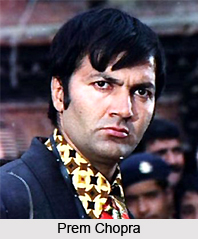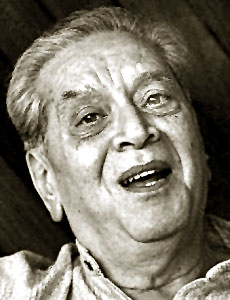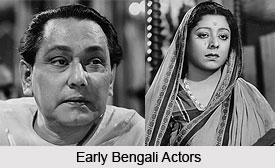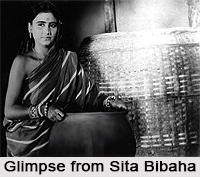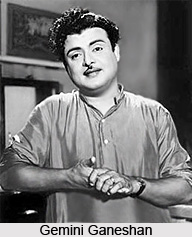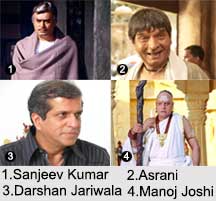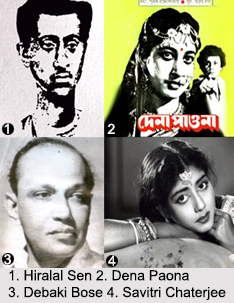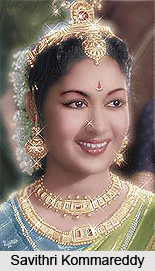 Apart from making critically acclaimed thought provoking films in Bengali Cinema, Rituparno Ghosh had also worked as an actor, television presenter and magazine editor. The immensely recognised director made his first screen appearance in an Oriya film, `Katha Deithilli Ma Ku`, directed by Himanshu Parija and released in 2003. In 2010, he featured in the Bengali film "Arekti Premer Golpo", directed by Kaushik Ganguly, which dealt with gay relationships and showcased Rituparno Ghosh as a gay filmmaker, alongside Indraneil Sengupta in the lead. "Arekti Premer Golpo" was the first film on homosexuality to be shot after the decriminalisation of Section 377 of the Indian Penal Code. The first screening of the film was held at the 60th Berlin Film Festival in 2010. Ghosh also featured in the English-Hindi bilingual "Memories in March", directed by Sanjoy Nag, which was again an effective exploration of a situation wherein a bereaved mother comes to terms with the sexual identity of her late son, played by Ghosh. The film premiered at the Pusan International Film Festival 2010 and released in India in 2011. It went on to win the National Film Award for Best Feature Film in English.
Apart from making critically acclaimed thought provoking films in Bengali Cinema, Rituparno Ghosh had also worked as an actor, television presenter and magazine editor. The immensely recognised director made his first screen appearance in an Oriya film, `Katha Deithilli Ma Ku`, directed by Himanshu Parija and released in 2003. In 2010, he featured in the Bengali film "Arekti Premer Golpo", directed by Kaushik Ganguly, which dealt with gay relationships and showcased Rituparno Ghosh as a gay filmmaker, alongside Indraneil Sengupta in the lead. "Arekti Premer Golpo" was the first film on homosexuality to be shot after the decriminalisation of Section 377 of the Indian Penal Code. The first screening of the film was held at the 60th Berlin Film Festival in 2010. Ghosh also featured in the English-Hindi bilingual "Memories in March", directed by Sanjoy Nag, which was again an effective exploration of a situation wherein a bereaved mother comes to terms with the sexual identity of her late son, played by Ghosh. The film premiered at the Pusan International Film Festival 2010 and released in India in 2011. It went on to win the National Film Award for Best Feature Film in English.
Rituparno Ghosh had hosted two celebrity chat shows on television, "Ebong Rituporno" on ETV Bangla and "Ghosh & Co." on STAR Jalsha. He was also the creator and scriptwriter of "Gaaner Oparey", a critically acclaimed Bengali television serial drama that aired on STAR Jalsha from June 2010 to April 2011. This TV musical marked the beginning of a yearlong celebration of the 150th birth anniversary of the great Indian poet Rabindranath Tagore. The new concept was the brainchild of Rituparno Ghosh and all the featured songs were popular Rabindra Sangeet tracks.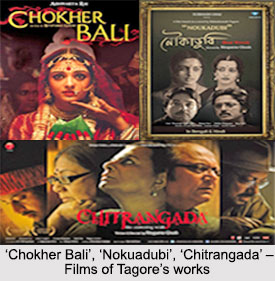
Rituparno Ghosh was also the editor of the Bengali film magazine, "Anandalok", from 1997 to 2004. He was also the editor of "Robbar" magazine of "Sangbad Pratidin", Indian Bengali daily newspaper published from Kolkata, from 2006 till his death.
Cinematic Vision of Rituparno Ghosh
Rituparno Ghosh was one of the most acclaimed movie directors of India, and was himself an admirer of Satyajit Ray. His films glorified womanhood, closely and sensitively portraying women`s lives, feelings and sufferings. According to veteran Bollywood actor Anupam Kher, Ghosh had a wonderful understanding of the female psyche. In his last films, he addressed issues on homosexuality and gender. An article in the newspaper Live Mint categorised Ghosh`s cinematic career in 3 phases: his early films, wherein he tried to portray Bengali middle-class lifestyle, their aspirations and desires; in the second phase, when he worked mainly with Bollywood actors and made films in Hindi and English as well as in Bengali, and the third and final phase when his films primarily focussed on sexuality.
Rituparno Ghosh had deep interests in the classics. An admirer of the Nobel laureate Rabindranath Tagore, he researched his works and made multiple films on them. The 3 films made by the director, directly based on Tagore"s literary works, include "Chokher Bali" (2003), "Nokuadubi" (2010) and "Chitrangada" (2012), wherein Ghosh himself featured as the choreographer struggling with his gender identity. In the 1999 Bengali film "Asukh", Tagore played an invisible role.
In 2012, Ghosh made a documentary based on Tagore`s autobiography, "Jiban Smriti", for the Government of India - Ministry of Culture. In an interview in August the same year, Ghosh spoke about Tagore and his documentary, stating, "What comes through is what a lonely man Tagore was - from childhood to old age. There is no one in his life to share even his success with him. It`s the journey of a lonely traveller. What I haven`t captured in the documentary is what a fun-loving, humorous man he could be. I show him as a profound thinker, a guru - but then this was perhaps necessary for an audience which is not at all familiar with Rabindranath."
Related Articles:
Rituparno Ghosh
Bengali Cinema
Indian Film Directors
Indian Movie Actors
Satyajit Ray
English Films in India
National Film Awards
Documentary Films in India
Indian Television Anchors
Rabindranath Tagore








